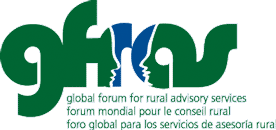A growing number of governments, donor agencies, and development organizations are committed to supporting nutrition-sensitive agriculture (NSA) to achieve their development goals. Although consensus exists on pathways through which agriculture may influence nutrition-related outcomes, empirical evidence on agriculture’s contribution to nutrition and how it can be enhanced is still weak. This paper reviews recent empirical evidence (since 2014), including findings from impact evaluations of a variety of NSA programs using experimental designs as well as observational studies that document linkages between agriculture, women’s empowerment, and nutrition. It summarizes existing knowledge regarding not only impacts but also pathways, mechanisms, and contextual factors that affect where and how agriculture may improve nutrition outcomes. The paper concludes with reflections on implications for agricultural programs, policies, and investments, and highlights future research priorities.
 Every country has developed, formulated, and decreed national policies related to rural advisory services. Find some examples here. If you are looking for a national policy from a specific country, please use the search function, selecting the category “National policies” and the tag for the country.
Every country has developed, formulated, and decreed national policies related to rural advisory services. Find some examples here. If you are looking for a national policy from a specific country, please use the search function, selecting the category “National policies” and the tag for the country.
Tuesday, 08 May 2018 15:13
Nutrition-Sensitive Agriculture What Have We Learned and Where Do We Go from Here?
Written by Ingrid OliveiraDownload here4356 times downloaded
Published in
Reviews and Assessments
Latest from Ingrid Oliveira
- Sustainable Undernutrition Reduction in Ethiopia: Training manual for Health and Agriculture Development Armies
- What Every Extension Worker Should Know - Core Competency Handbook
- Sustainable Nutrition Manual Part 3: Healthy Designs
- Sustainable Nutrition Manual Part 2: Healthy Environments
- Sustainable Nutrition Manual Part 1: Healthy Humans


